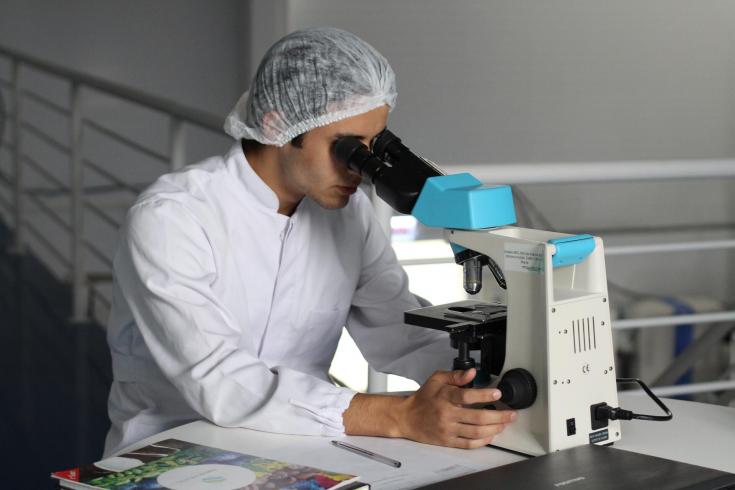Artificial Intelligence in health

The Interreg Europe Policy Learning Platform organised an online discussion on Artificial Intelligence (AI) in Health on Thursday 16 July 2020, following up from Interreg Europe community’s preference poll for online discussions to respond to COVID-19 emergency.
Artificial Intelligence in health plays a key role in every aspect of the COVID-19 crisis response, research, detection, prevention, response, and recovery (see figure 1 below). As a result, the topic of Artificial Intelligence in health has gained significant momentum in policy circles. Reflecting on peer review recommendations from the
on 17-18 December 2019, the online discussion explored the importance of Artificial Intelligence in Health to respond to the current COVID-19 emergency and opportunities for policymakers to promote this sector.Figure 1. Examples of AI applications at different stages of the COVID-19 crisis. Source: OECD Report - using artificial intelligence to help combat COVID-19
Policymakers have an important role to play to promote AI in health considering the current COVID-19 crisis. For instance, they can encourage the sharing of medical, molecular, and scientific datasets and models on collaborative platforms to help AI researchers build effective tools for the medical community, and should ensure that researchers have access to the necessary computing capacity (OECD Report).
Artificial Intelligence in health must be transparent and trustworthy. Policymakers can get inspiration from the policy change from the Interreg Europe project MARIE in which Tampere Regional Council and Tampere University have introduced responsible criteria such as ethics, engagement, openness/transparency and safety/reliability into a regional ERDF call on Artificial Intelligence ('Sustainable growth and jobs 2014 - 2020 - Finland's structural funds programme').
Reflecting on the recommendations from the peer review on Artificial Intelligence in Health, the participants emphasise:
- On the importance of involving users, the COVID-19 spurred an acceleration of research projects but there was a lot of competition for funding and for engaging users. A possible path to involve users is through the creation of health living labs to test innovative health services and solutions as explained by the lead partner, Galician Health Knowledge Agency (ACIS), from TITTAN.
- On data issues, the creation of a task force on data has proven beneficial in Denmark. In Switzerland, there was a speed-up process for ethical approval to collect data.
- On financial issues, Cantabria has provided extra funding for innovative projects dealing with health to respond to COVID-19 emergency.
- On digitalisation strategies, SMEs are increasingly interested in using artificial intelligence in health. In DIGITAL REGIONS, the Institute of Information Systems Hof University highlights the importance of research and professorship in artificial intelligence.
- On the interregional dimension, European Digital Innovation Hubs (EDIHs), which puts the spotlight on artificial intelligence, could facilitate interregional collaboration in artificial intelligence and provide additional funding for regions to pursue innovative projects
Presentations of the online discussion
-
by Thematic Expert of research and innovation, Arnault MorissonDocument
-
by Jorge Muyo from Cantabria, Spain (DIGITAL REGIONS project)Document
-
by Ninetta Chaniotou from Kainuu, Finland, (BRIDGES project)Document
Policy Learning Platform resources
- Read the story on innovation in healthcare: showcasing Interreg Europe good practices
- Read the policy brief on
Document
- Read the final peer review report on
- Read the OECD report on using artificial intelligence to help combat COVID-19
